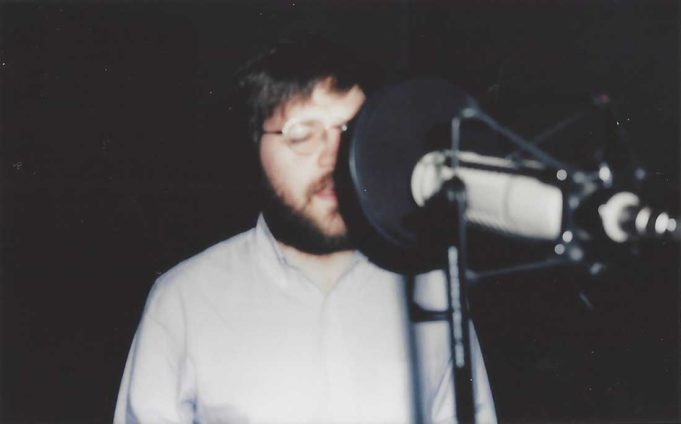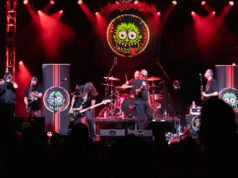The kernel of what ultimately becomes a proper song is often just a rough guitar part quickly captured on a four-track, abstract lyrical concepts scribbled into a spiral notebook, or a vocal melody hummed into an iPhone. These sketches are then honed, expanded, layered, and fleshed out until the artist’s final vision is realized. But for Jackson Eudy, the songwriter behind the lo-fi pop project Mouse Trap, a song is never quite as genuine as it is in those initial bursts of inspiration.
“There’s always a certain magic to the first recording of an idea,” Eudy said. “Documenting that brief first impression, that natural, intuitive, cathartic expression of an idea, that’s a song in its purest, most unfettered form.”
Eudy, a 27 year-old architect by day, is baby-faced, with lightly tousled brown hair and benign wire-framed glasses. He’s thoughtful and articulate yet prone to lengthy but not unenjoyable tangents, tracing a wildly diverse and virtually encyclopedic music knowledge that spans ’40s American folk music, ’60s experimental psych, and sappy indie-pop from the ’80s and ’90s. He displays a special fondness for what he calls “Texas outsider/loner musicians” — eccentric weirdoes like Daniel Johnston, Mayo Thompson of Red Krayola, and Houston blues deconstructionist Jandek.
Eudy’s recording project/band in the making has just released its debut album through a lo-fi cassette label inexplicably based out of Bratislava, Slovakia, called Z Tapes. With a goal of maintaining as much of that spontaneous, germinal, magical essence as possible, the songs that Eudy supplies are short and simple samples of nerdy, lovelorn pop. Beginning with the 30-second-long “Dream Girl,” each track serves as a brief testimony of uncomplicated and relatable feelings – a snapshot of emotion arrested in time, communicating their intent with economy like flipping through a stack of sonic Polaroids. The 10 tracks, which collectively clock in at around an impressively concise 19 minutes (the longest tune maxes out at just over two minutes), still manage to shoulder the emotional weight they’re meant to support, in much the same way a haiku’s format streamlines poetic thought.
Recorded in pieces between Cloudland Recording Studios and Eudy’s home, the album features contributions from several local heavy hitters: Deryck Bererra and Jacob Bruce of Fungi Girls, each playing a little bass; Susannah Cutler (Yours Are the Only Ears) on backing vocals; French musician Jacques Glazier, who supplied additional guitar work and served as producer; and Kolby Kelly, who added some keys and bell kit. The Cloudland sessions were engineered by Robby Rux (Year of the Bear, Antirad), and the finished tracks were mixed by Justin Wabs. Callum Newton (Lunatics on Pogo Sticks) was charged with balancing a quality full-range master while retaining an intimate home recording aesthetic essential to the material, Eudy said. The end result is a pleasing and cheerful-sounding album befitting the music’s playful, intentional naivety. And thankfully, the recording is absent the excessive tape hiss and harsh frequencies that can often mar other bedroom-born material.
Eudy recalled how he developed a penchant for purposefully “underdeveloped” songwriting and how design school might have subconsciously influenced it.
“When I first started writing songs, they were the length of your traditional pop song,” he said. “They were three or four minutes long, had bridges, transitions, and sort of checked all the boxes of a typical pop song. But the more I recorded, the more fat I kept cutting off of them. And the more of what remained was just that original naked idea. It’s likely just an extension of a sort of Mies van der Rohe ‘less is more’ philosophy I kind of apply to all art forms.”
He went on to joke about what he considers might be the exact musical opposite of Mouse Trap’s undeniably conscious understatement: jam bands.
“They’ll just like jam out a part for 10-plus minutes and really just exhaust an idea,” he said. “I don’t want to give the impression that the way we do it is the way music should be made. But in my mind, our songs are exactly as long as they need to be.”











